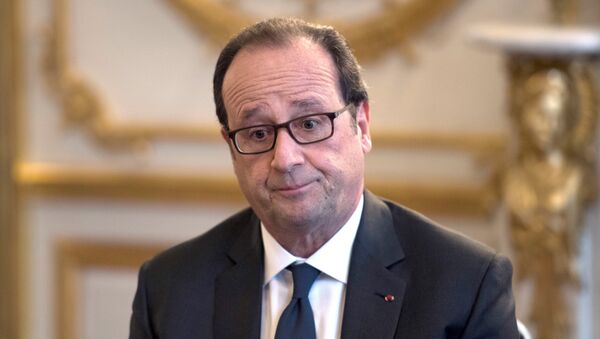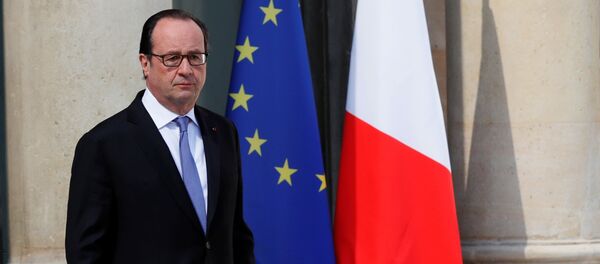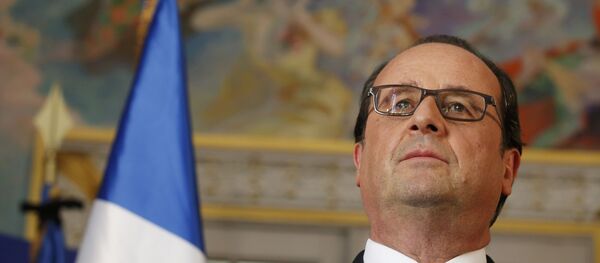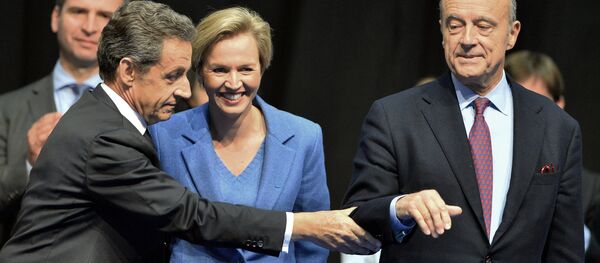The document was signed by 79 MPs, including by head of the Republicans faction Christian Jacob and former Prime Minister Francois Fillon.
The Republicans Party said that later several dozens of lawmakers would join the resolution. According to the rule, the French president and the prime minister should be notified of the initiative.
What the President Should Not Have Said
The resolution was provoked by the release in October of a controversial book entitled "A President Should Not Say That: Secrets of Five Years in Office." It was written by French investigative journalists Gerard Davet and Fabrice Lhomme.
The book records dozens of Hollande's private conversations with journalists including the president's comments on the French airstrikes in Syria and his admission that he personally ordered the assassination of enemies of the state.
However, a month later after the release Hollande said he gave no assassination orders. The president said he issued only surveillance and "neutralization" orders.
Now, if the draft resolution is authorized it will be submitted to the National Assembly legal commission, and then the French parliament will establish the High Republican Court to decide on the case.
The impeachment procedure for the French president was introduced to the country’s constitution in 2014, as part of Article 68. According to the document, impeachment can be pronounced only if the president has neglected of his duties, directly contradicting with his obligations.
Trump’s Triumph Spurred French Election Campaign
According to Francois Fillon, the authors of the initiative do not believe they will succeed because right-wing MPs do not have a majority in the parliament.
However, the fact that the move has been initiated is a signal to begin the active phase of the electoral campaign, Fedor Lukyanov, head of the presidium of the Russian Council for Foreign and Defense Policy, told RIA Novosti.
The possible candidates from the three leading parties were announced in 2014. They are incumbent Francois Hollande from the Socialist Party, former President Nicolas Sarkozy from the Republicans Party, and Marine Le Pen, leader of the National Front movement.
According to Lukyanov, the unexpected victory of flamboyant Republican Donald Trump in the United States has energized the electoral campaign in France.
"French mainstream political forces cannot help using this moment. Now, they need to intensify efforts and start portraying themselves as opponents to the failed political program of the current establishment," he pointed out.
Shortfall of Leaders
Trump’s victory is an undesired outcome for Hollande and French right political forces will try to play this card, said Alexander Orlov, head of the Institute for International Studies of the Moscow State Institute of International Relations.
"Hollande’s popularity is extremely low in France. He has failed to become a president for the entire French nation. Many of his reforms contradict his social-democratic background. As a result, he has been losing his supporters. At the same time, his opponents use every chance to further weaken his positions," Orlov told RIA Novosti.
At the same time, if Hollande dropped his presidential bid this would strengthen the position of the Socialist Party by dumping the failed candidate, he added.
The Republicans Party is now seeing the same situation because the party still cannot decide between Sarkozy and former Prime Minister Alain Juppe. According to Lukyanov, if the former president quitted the race this would add to Republicans’ chances to win in the election.
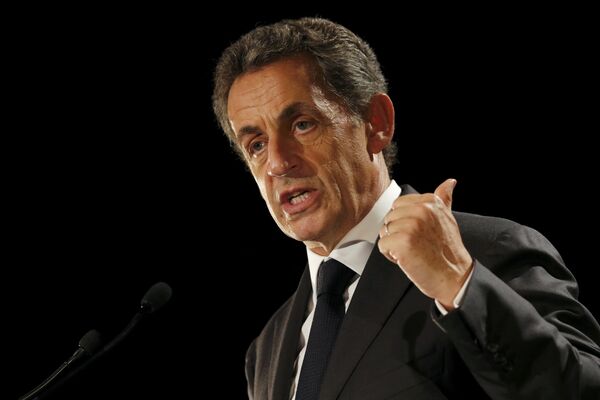
"The current situation in France is typical in some European countries that lack charismatic leaders, like Valerie Giscard d’Estaing, Jacques Chirac or Francois Mitterrand. There are no such persons among the most influential right- and left-wing parties in Europe," Orlov pointed out.
A Third Candidate
For the Socialists and the Republicans there is the risk that by betting on such played-out candidates as Hollande and Sarkozy, they will force the electorate to vote for a third, less popular but more offbeat, candidate.
Orlov believes that in fact Le Pen has almost no chance to win in the election because her base is very specific and limited. At the same time, he said, the National Front leader could reach the second round of the election.
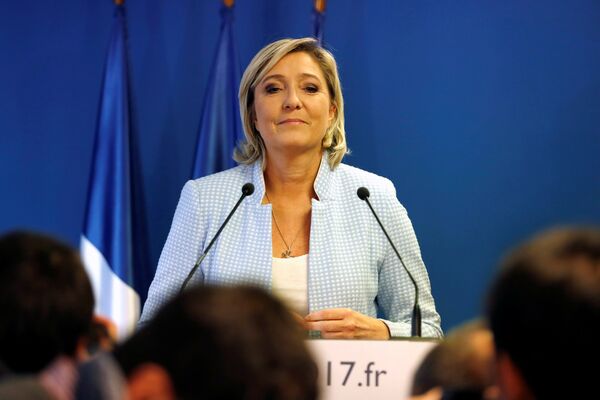
In turn, Lukyanov argued that taking into account the Brexit vote and Trump’s victory, Le Pen’s victory is possible.
"The results of the Brexit referendum were unexpected but this is what happened. Trump’s victory over Hillary Clinton was also unexpected. So, for example, if Le Pen won this would be part of that trend of shocking results," Lukyanov pointed out.
According to him, the "trend" indicates that political forces are drifting from the so-called "centrist mainstream" which is characterized by the fact that the major parties are so closed to the center that changes between left-wing and right-wing leaders lead to no actual political changes.
"Now, the centers of political influence are moving to the right or left. The lefts get truly left, and the rights get truly right. This is some kind of de-globalization in European politics. Brexit as well as Trump’s victory have greatly contributed to the trend," the analyst pointed out.
This trend is visible in other European countries, including in Austria and the Netherlands. However, it does not contribute to preserving European and global stability, he concluded.
